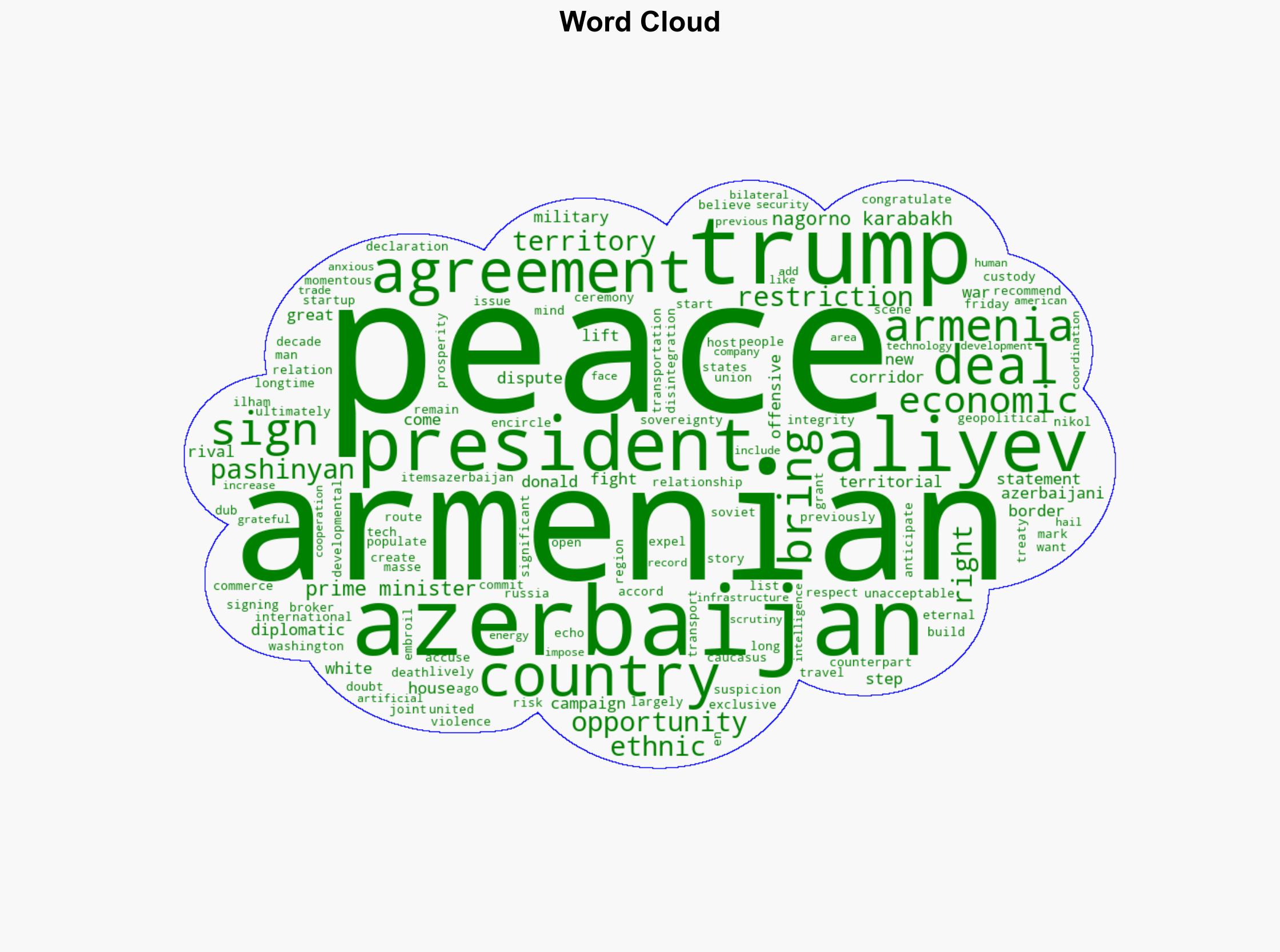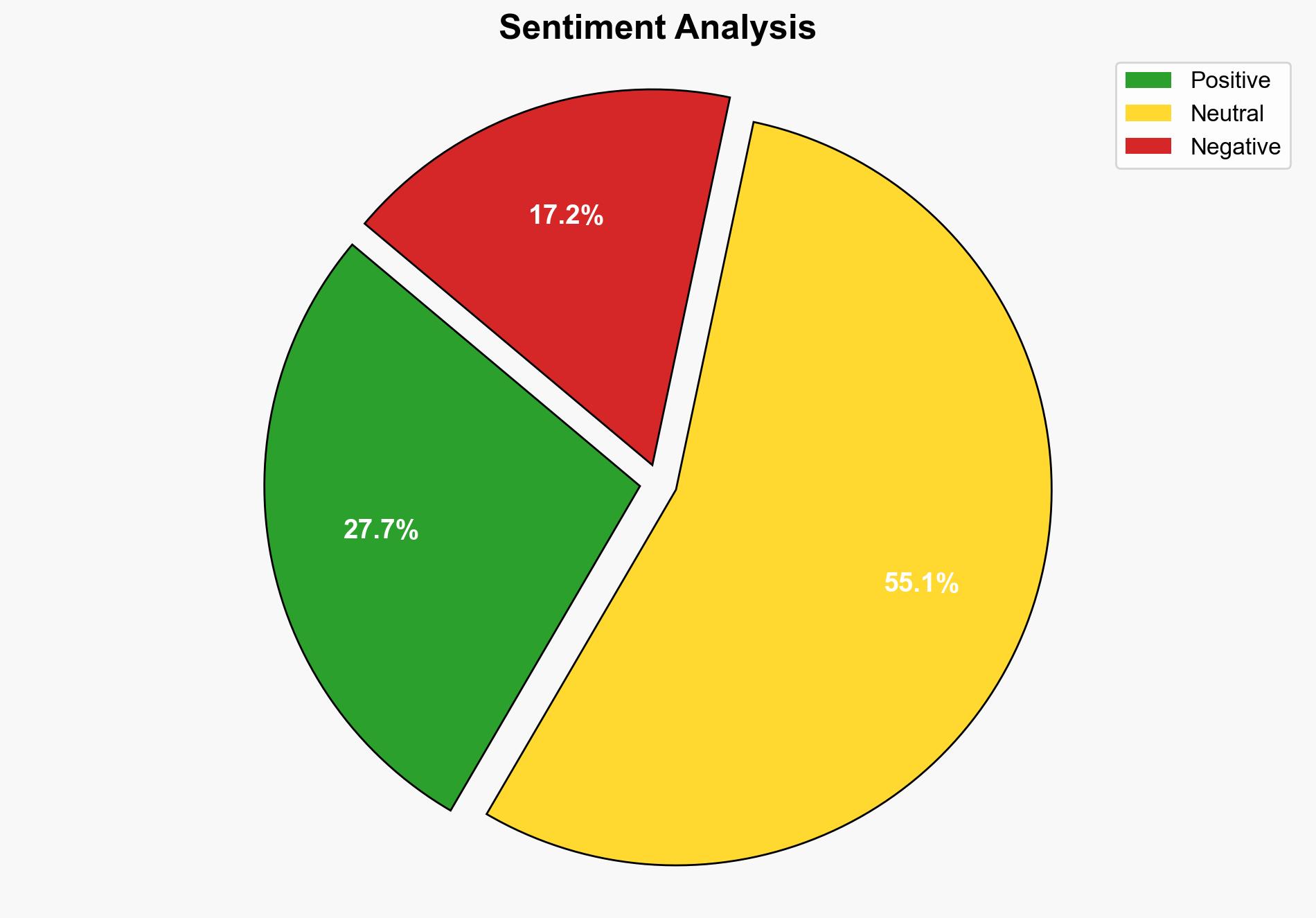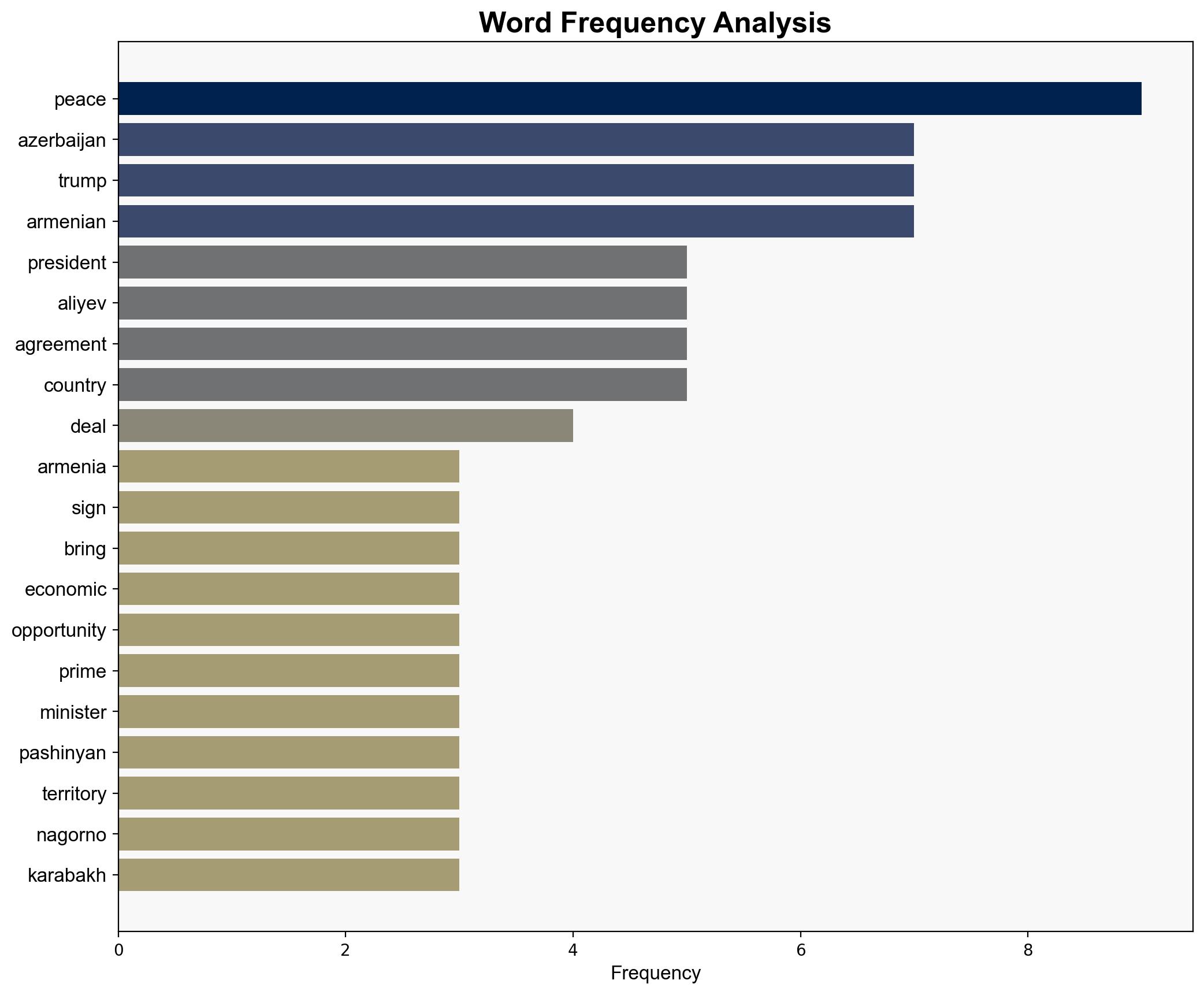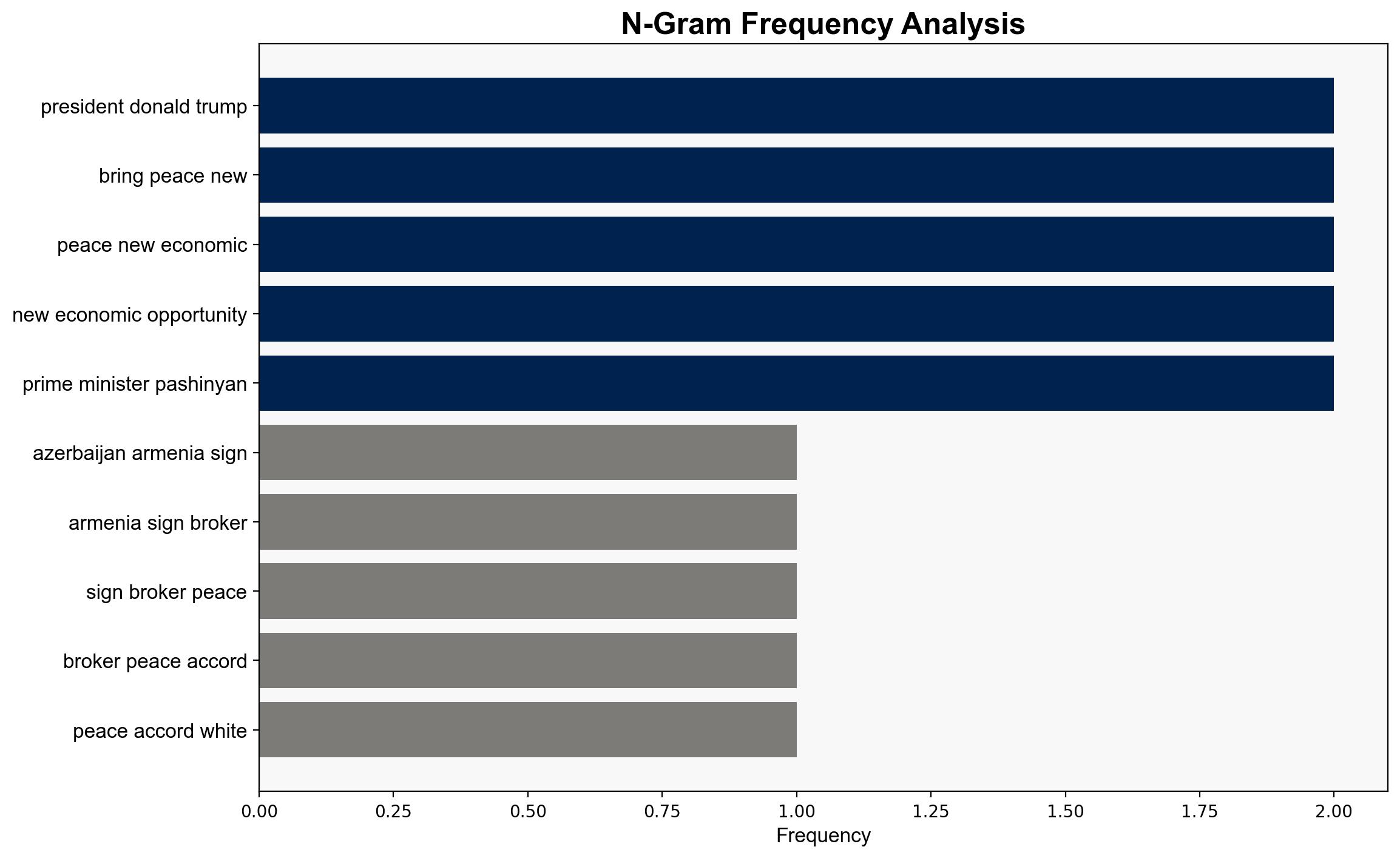Azerbaijan and Armenia sign accord overseen by Trump at the White House – Al Jazeera English
Published on: 2025-08-08
Intelligence Report: Azerbaijan and Armenia sign accord overseen by Trump at the White House – Al Jazeera English
1. BLUF (Bottom Line Up Front)
The peace accord between Azerbaijan and Armenia, facilitated by Donald Trump, presents a significant diplomatic development with potential economic benefits. However, the underlying tensions and historical grievances pose substantial risks to the accord’s durability. The most supported hypothesis suggests that while the agreement may temporarily reduce hostilities, deep-seated mistrust and unresolved territorial disputes could undermine long-term peace. Confidence Level: Moderate. Recommended action includes diplomatic engagement to address underlying issues and monitoring of regional stability.
2. Competing Hypotheses
1. **Hypothesis A**: The peace accord will lead to lasting peace and economic prosperity in the region. This hypothesis is supported by the formal commitments to open commerce, travel, and respect for sovereignty, as well as the involvement of American companies in infrastructure development.
2. **Hypothesis B**: The peace accord is a temporary measure that will not resolve the underlying territorial and ethnic tensions, potentially leading to renewed conflict. This is supported by historical animosities, the contentious issue of Nagorno-Karabakh, and skepticism from Armenian groups about the agreement’s legitimacy.
Using ACH 2.0, Hypothesis B is better supported due to the persistent historical grievances and the lack of comprehensive conflict resolution mechanisms in the accord.
3. Key Assumptions and Red Flags
– **Assumptions**: The accord assumes that economic incentives and diplomatic engagement will override historical grievances. It also presumes that both parties will adhere to the terms without external enforcement.
– **Red Flags**: The absence of detailed conflict resolution mechanisms and the lack of involvement from other regional powers like Russia could undermine the accord. The perception of the agreement being reached under duress (“gunpoint”) raises concerns about its legitimacy.
4. Implications and Strategic Risks
– **Economic**: Potential for increased foreign investment and infrastructure development, but contingent on regional stability.
– **Geopolitical**: The accord may shift regional power dynamics, particularly if perceived as a U.S.-driven initiative excluding Russian influence.
– **Psychological**: Mistrust between the populations could persist, fueled by memories of past conflicts and ethnic cleansing allegations.
– **Escalation Scenarios**: Failure to address core issues could lead to renewed hostilities, potentially drawing in regional powers and destabilizing the Caucasus.
5. Recommendations and Outlook
- Engage in multilateral diplomacy to include other regional stakeholders, particularly Russia, to ensure broader support for the accord.
- Establish monitoring and verification mechanisms to ensure compliance with the accord’s terms.
- Scenario Projections:
- Best Case: Successful implementation of the accord leads to economic growth and regional stability.
- Worst Case: Breakdown of the accord results in renewed conflict and regional instability.
- Most Likely: The accord holds in the short term, but unresolved issues lead to periodic tensions.
6. Key Individuals and Entities
– Donald Trump
– Ilham Aliyev
– Nikol Pashinyan
– Aram Hamparian
7. Thematic Tags
national security threats, regional focus, geopolitical dynamics, conflict resolution





